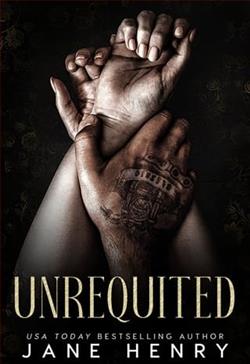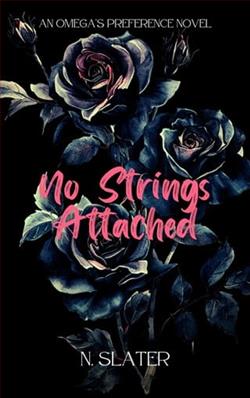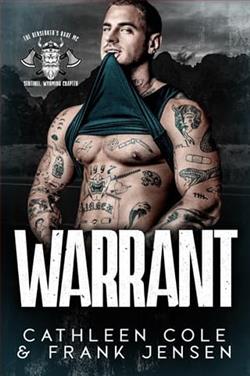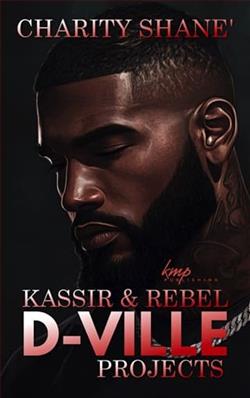Page 27 of Velvet Betrayal
“You might. I’m gonna shower. Will you be okay without me?”
“For ten minutes? I’ll live.”
“You better,” he said, dead serious—then he turned away, hand on the bathroom door. For a second he paused, as if he might say something else.
But he didn’t.
Just flashed me a tired look over one shoulder, and shut the door quietly behind him.
I crossed to the window. Boston glowed beneath me, distant and menacing. The grid of Boylston cut through the dark like a scar, lit in red and white. Every building looked like it had eyes. Every alley, a whisper. Somewhere down there, someone was already running the plates. Someone was making a call. Filing a report. Drawing a line.
But up here? The window didn’t open. It was sealed shut, a reprieve from Kieran’s world and from mine.
The glass had fogged from the inside, condensation creeping across the corners. I pressed a finger into it, drew a little spiral without thinking, then wiped it away.
Safe—for now. Maybe.
A bus rolled past below, taillights fanning red across the wet street. I watched it go, and for the first time in years, I had no plan.
I waited up for Kieran. When he came out of the bathroom, toweling his hair, the sight of him startled me—not because he was dangerous, but because for a second, I saw him the way a stranger would: a man built for war, rough at the edges, but softened by the small gestures that tied his life to mine. Hesniffed at the curtains, arms crossed, towel at his collarbone. “You didn’t have to wait,” he said.
“I know.” I kept my voice low. “It’s weird sleeping in a place like this and not thinking about… everything else.”
He stepped closer, gaze unreadable in the TV’s afterglow. “You want the bed closest to the wall, or the one by the window? I remember you used to hate light, but maybe you’ve changed.”
“People don’t really change,” I said, and instantly regretted it. “Sorry. I’m tired.”
“So am I. Come here.”
“What? Why?”
He rolled his eyes. “Just do what I tell you for once. Come here.”
I was too tired to argue. “Fine, but please don’t murder me,” I said, walking up to him. He laughed, pulling me into the bathroom with him.
“What are you—”
“Shh,” he said. “Look at yourself in the mirror.”
“What? I look really tired.”
He smiled. “You do,” he said. “But you also look like you could kill someone with a Post-It and a legal pad and maybe a paperclip. Which is exactly how I remember you.” He steered me so I was bracketed by him and the mirror, hands on my shoulders—gentle, not sexual, just insistent. “Last time I saw you in a hotel bathroom like this, you were prepping a closing argument. Except you were wearing my shirt, not…this.” He thumbed the collar of my robe. “Anyway. I want you to see this version of you.”
I tried to look away, but he caught my chin. I stared into my own eyes, braced and lacquered. There were new lines, more shadow; it wasn’t the face of a woman who ran six miles every morning and exfoliated with the tears of locally-sourced virgins. But I didn’t hate it. Not as much as I should.
“Why does it matter?” I asked, voice barely above a whisper.
Kieran’s hands eased. “Because you keep thinking there’s a break between who you were and who you are, and you keep punishing yourself for crossing it.” He traced a thumb down my jaw, so gentle I almost laughed. “But it’s the same damn face. And it’s the same damn person. Just…sharper. And you’re not dead.”
I blinked, and the red rimming my eyelids went temporarily transparent. I had to close my eyes. “That’s a very long-winded way of saying I look tired.”
He snorted. “Just tired is an improvement over some of the alternatives.”
I almost laughed. Maybe that was the trick. Whenever he was this thoughtful, I wanted to slap him, because I’d spent years convincing myself Kieran Callahan was a blunt weapon, not a source of comfort. But here it was.
“You don’t have to worry. I’m not breaking apart, even if it looks that way sometimes. You can stop…doing this. Whatever this is.”
He leaned against the vanity, arms crossed, lazy and confident and stubborn. “I don’t want to stop.”















